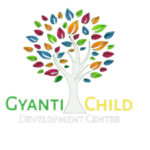- ADHD is one of the most common conditions in childhood. It impacts how kids
function in school and in everyday life. ADHD is caused by differences in the
development of brain anatomy and wiring. - ADHD isn’t a learning disability, even though it can affect learning. But ADHD often
co-occurs with common learning issues like dyslaxa, dyscalculia and dysgraphia.
Many kids with ADHD also struggle with mental health issues like anxiety and
depression at some point. - There is no blood or imaging tests that can diagnose ADHD. Instead, Occupational
Therapist uses a variety of behavioural questionnaire to determine if a child has
ADHD. - ADHD is essentially an issue with executive function. Because of that, kids with ADHD
often have trouble in: - Working memory
- Flexible thinking
- Managing emotions
- Self-regulation
- Organization and planning
- Managing time
- Getting and staying organized
- Paying attention and remembering things
- Shifting focus from one thing to another
- Thinking before saying or doing things
- Here are some signs you or teachers might see at different grade levels:
- Grade-2(Pre-School)
- Ignores directions or doesn’t follow them
- Grabs things without permission
- Gets easily and extremely frustrated
- Needs to be frequently reminded to stop and listen
- Has trouble getting started on tasks
- Gets up, fidgets or talks when expected to be quiet
- Grades 3–7
- Seems day dreamy and distracted, and easily loses focus
- Frequently loses or forgets things
- Is often restless
- Tends to forget to bring home assignments or turn them in
- Doesn’t consider consequences before doing things
- Doesn’t finish tasks in a reasonable amount of time
- Teens (13-19yr of age)
- Has trouble getting organized and prioritizing things
- Often acts impulsively
- Frequently fidgets and talks too much
- Has trouble meeting deadlines and finishing tasks
- Often needs to re-read things or have directions repeated
- Often rushes through assignments, making errors.
- While many kids with ADHD rush through assignments, others actually work more
slowly than other kids. Slow processing speed is common in kids with ADHD. It can
make it harder to complete tasks or explain things as quickly as their peers. Also, kids
with ADHD can be more likely to have learning differences. - Other Issues That Can Co-Occur With ADHD
- Executive functioning issues and ADHD are closely related. In fact, the symptoms and
difficulties of ADHD are problems of executive function. Trouble with attention, selfcontrol, memory and organization are often due to weak executive skills. - Dyslexia occurs in roughly 20 to 40 percent of kids with ADHD. This common learning
issue impacts the ability to read. Dyslexia can also interfere with other learning skills
like math, spelling and writing. - Dyscalculia and dysgraphia are also common in kids with ADHD (and vice versa).
Dyscalculia is a learning disorder that impacts math, while dysgraphia impacts
writing. - Slow processing speed isn’t part of ADHD, but it can add to the challenges.
Processing speed is like the engine that drives how well kids can use executive
functioning skills. So kids with slow processing speed may have a harder time
starting tasks & staying focused. - Sensory processing issues can occur in some kids with ADHD. These kids have trouble
handling input that comes through the senses. They can get overwhelmed by things
like smell, noise, taste and textures. - Auditory processing disorder can look like ADHD. That’s because trouble following
directions or talking with people can be signs of both. But while their symptoms may
appear to be similar, these two issues are very different. - Nonverbal learning disabilities are learning issues that impact social skills. Kids with
ADHD often struggle with social skills, too, and these two issues can co-occur. - Anxiety and depression both commonly occur with ADHD. Kids with ADHD have a
greater risk of mental health issues than kids who don’t have ADHD. - What Occupational Therapist & Speech Therapist can do for ADHD?
- Occupational Therapy uses Sensory Integration Therapy, Brain Gym Exercises, Music
Therapy, Gross motor, Fine motor activities and Calming Techniques to control
maladaptive behaviours. Speech Therapist helps if any speech & language related
issues presents in ADHD children
Useful Links
Reach us
- +91 9128805585
- +91 7703938535
Open Hours
- Mon-Sat 09:00 AM – 09:00 PM
- Sun 09:00 AM – 05:00 PM
Subscribe Now
Don’t miss our future updates! Get Subscribed Today!
©2022. Gyanti Child Development Center. All Rights Reserved.
Powered By Yourwebstore

